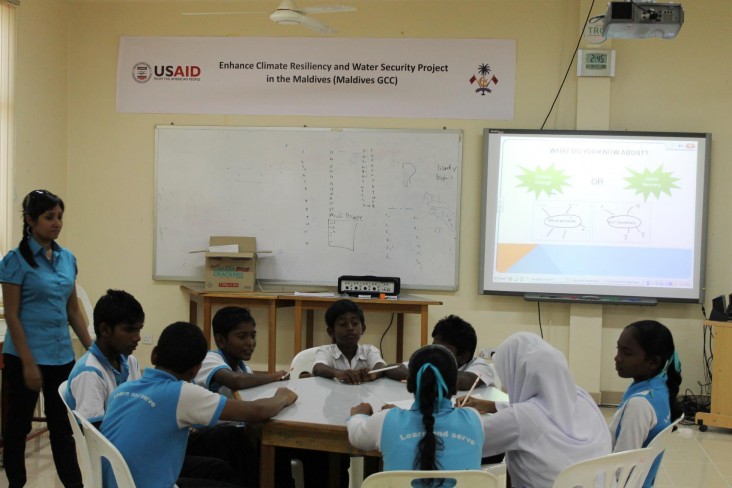
Coral reef ecosystems are essential for sustainable oceans. Not only do they support major fisheries, they also buffer shorelines against waves, storms and floods, helping to prevent loss of life, property damage and land erosion. Yet, coral reefs are particularly vulnerable to the effects of climate change, including sea level rise, warmer sea temperatures and ocean acidification.
USAID is strengthening the management of coral reef ecosystems to mitigate the adverse effects of climate change in Maldives. USAID trained 650 volunteer marine biologists between 2014 and 2016 on best practices to monitor marine biodiversity. These “citizen-scientists” help raise awareness and implement much-needed climate impact mitigation and management measures. USAID has also sponsored a series of public seminars on environment at the Maldives National University. More than 6,000 people have attended these seminars. We are also helping the Maldivian Government achieve its goal of being designated a UNESCO Biosphere Reserve–an international recognition that will help boost conservation efforts.
To address the issue of decreasing potable water, USAID is building an integrated desalination and rainwater system. When completed, the system will provide reliable access to safe drinking water to 5,300 residents. In addition, USAID is providing a water treatment plant and a fully equipped water quality testing laboratory to serve the northern Maldivian islands. To help sustain the water supply systems, USAID is training local and national utilities personnel to operate and maintain these systems.








Comment
Make a general inquiry or suggest an improvement.